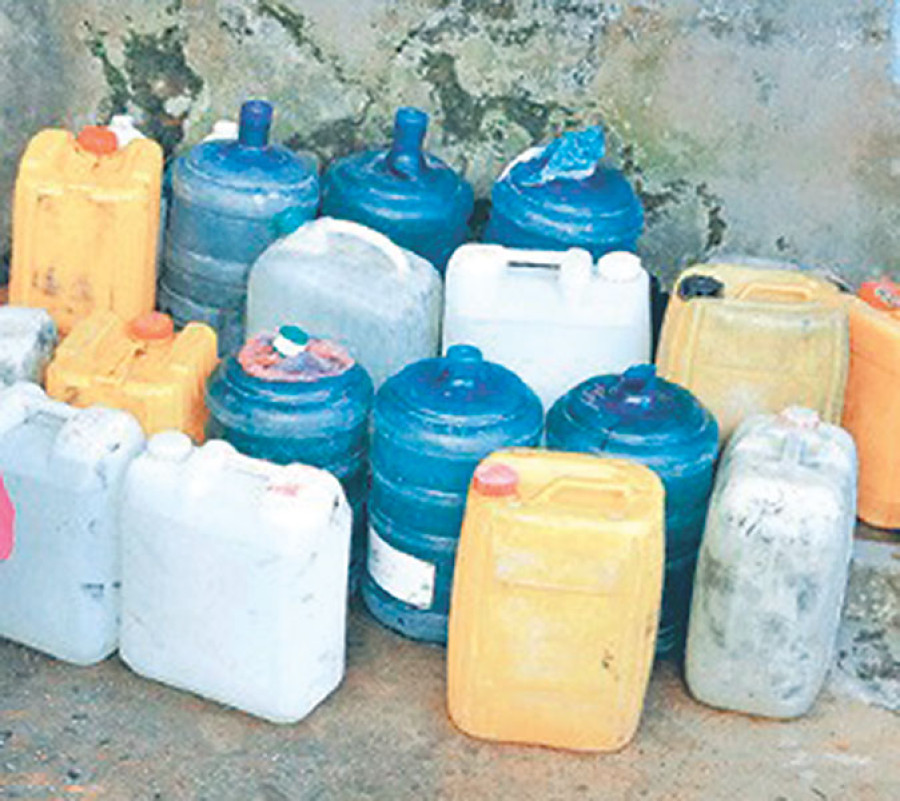Miscellaneous
Study reveals city potable water rife with bacteria
Residents of Kathmandu Valley have been forced to drink water infected with coliform bacteria such as Vibrio cholera and Salmonella typhi, a new study reveals.
Residents of Kathmandu Valley have been forced to drink water infected with coliform bacteria such as Vibrio cholera and Salmonella typhi, a new study reveals.
Drinking water contaminated with coliform triggers dysentery and diarrhoea disorders and diseases such as cholera and typhoid. The National Academy of Science and Technology (NAST) conducted the study in the fiscal year 2016-17 based on 758 samples collected from different sources including tap, tube-well, well, tanker, jar and bottled water.
Tests showed that 78.75 percent of the samples had coliform. “This shows that the residents of Kathmandu Valley are at high risk of communicable diseases,” Tista Prasai Joshi, an officer at NAST, told the Post. People are forced to buy jars, mineral water and tanker water and to dig for natural sources such as well and tube-well due to inadequate supply from the Kathmandu Upatyaka Khanepani Limited (KUKL). People who choose jar and bottled water for “purity” also end up consuming water contaminated with coliform.
The KUKL and NAST have separate laboratories to test water samples. Gyanendra Bahadur Karki, chief of the Water/Waste Water Quality Assurance Division at the KUKL, said, “Samples of jar water brought to us for test mostly have coliform. This is due to bad processing of jars, which increases contamination.”
While NAST’s study showed contamination in some samples of water supplied by the KUKL, Karki claimed that the water supplied at least at the source was safe for drinking.This is not the first time that drinking water has been found to be infected. NAST and KUKL have been testing water regularly for long. Joshi said tests over time had shown that contamination of water is a regular phenomenon.
“The main reason for contamination is poor processing, building septic tanks near wells or tube wells, poor sanitation around water sources and unclean jars and bottles,” she added.Unchecked supply of contaminated water has raised questions over the “apathy” of government agencies for ensuring supply of water fit for consumption. Purna Chandra Wosti, spokesperson for the Department of Food Technology and Quality Control, said they were increasing efforts to minimise contamination of coliform and other bacteria in water. “Those failing to process water in hygienically will face stern legal action,” he added.




 15.12°C Kathmandu
15.12°C Kathmandu









